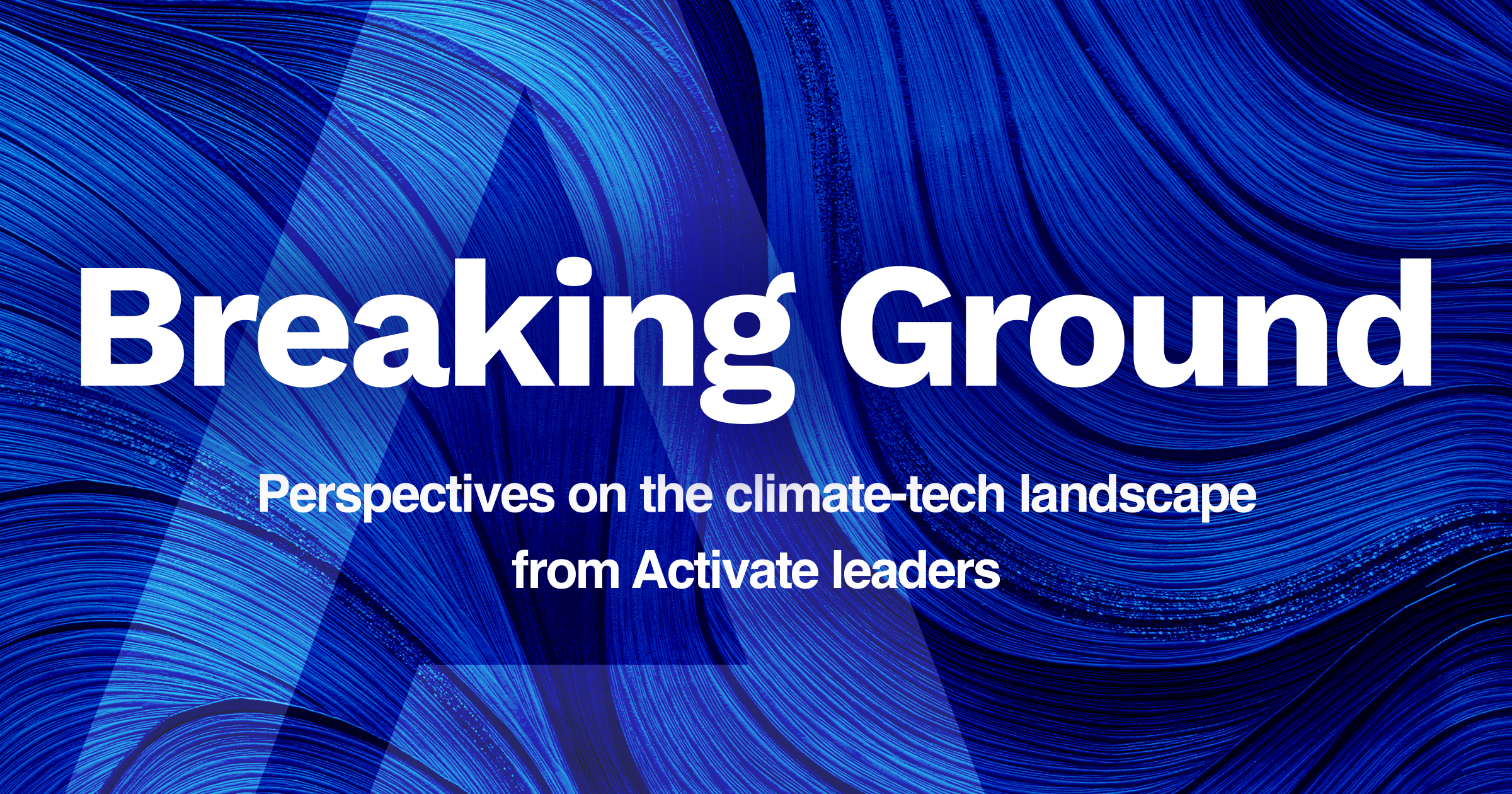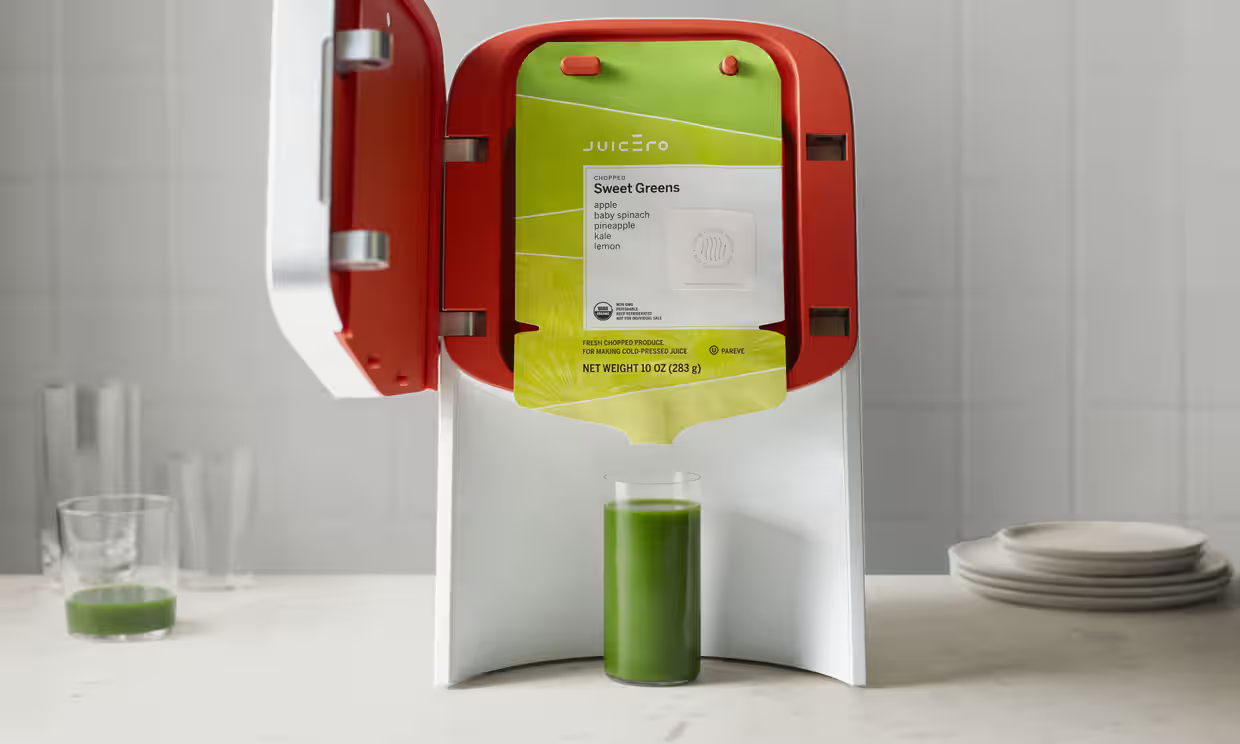Lessons from a Failed Juicer Startup on the Power of Entrepreneurial Community
March 27, 2024
By Dan Recht, Managing Director - Activate Boston

When Juicero shut down on September 1, 2017, the news spread quickly through San Francisco’s Mission District, which was then ground zero for hardware startups in the city. Hacker News, Y Combinator’s Reddit equivalent for the startup community, picked up the story first thing that morning.
At that time I was CEO of a hydrogen storage startup based in a shared building down the street, where we had our workshop/lab on the concrete ground floor and a few desks in a former school gym upstairs. On my way to work that day, I passed three neighborhood coffee shops, each overflowing with chatter about one of the highest-profile mistakes in the history of our Bay Area startup ecosystem: Juicero had raised and spent $120 million in venture capital to build a $600 juicer that squeezed proprietary packets of cut fruit. And it turned out those packets could be juiced by hand.
Curious to learn the real story and empathetic to their young team, I bought a 12-pack, walked over to Juicero’s HQ, and rang the doorbell. The door had a small peephole camera which meant that whoever answered could see I’d brought beer. They immediately buzzed me up.
After talking with the Juicero engineers, I learned that the writing had been on the wall for a while. No one was crying. A few folks were happy to give me a tour of the lab and some prototypes. Those prototypes made me realize that Juicero’s ecosystem had dealt the company a nearly unwinnable hand.

Photograph: PR company handout
Juicero’s customers had asked for a machine that could juice whole fruit unattended while requiring no cleanup, which led to a press-style juicer with a burly and expensive mechanism. Juicero’s investors had expected recurring revenue as a means to drive rapid growth, thus the single-use fruit packs. Juicero’s processed fruit suppliers had been unwilling to explore retooling to package coarse cuts so the packs were full of finely-cut fruit that could be juiced by hand.
As a result, the juicer, originally designed to juice whole apples, looked obscenely overengineered alongside the fruit packs. Meanwhile, the fruit packs were born as a clever solution to pulp disposal when juicing large pieces of fruit, but seemed to customers like a blatant money grab because much of their benefit had vanished.
Contrary to my assumptions at the beginning of the day, it was now easy for me to imagine an alternate timeline where Juicero had shipped a genuinely better juicer and become a household name. It was also easy to see how pressure from investors and suppliers (along with management’s failure to navigate that pressure) had derailed that outcome.
Juicero may have been making juicers and not hydrogen tanks like my startup, but the success of both our companies relied on one thing: entrepreneurial community support.
Since my own time as a CEO, I’ve worked with dozens of startups commercializing inventions. These startups are bold but fragile, which gives their communities particular influence in their journeys. Supportive communities can promote healthier founding teams and better final products. In contrast, apathetic, fearful, or exploitative communities promote unhealthy founders and worse technology.
“Juicero may have been making juicers and not hydrogen tanks like my startup, but the success of both our companies relied on one thing: entrepreneurial community support. ”
Startups that are founded around an invention are particularly vulnerable to outside influence. This is because the invention is often the subject of especially tough tradeoffs. An invention’s advantage over whatever status quo it replaces is a scarce resource and once a startup has spent it, it is nearly impossible to recover.
My hydrogen storage startup’s advantage was that we could store more gas in a given volume compared to the incumbent hydrogen tanks. We then had to decide when to give up some of that benefit to get our product to market. It’s meaningless to ask whether we were better at navigating these choices than the Juicero team was, but I can say for sure that we had better support from our ecosystem.
“If we force startups to trade away what is good about their inventions, we risk slowing human progress. Conversely, when we support startups and protect the benefits of their technologies, we get compounding positive effects that, over time, make the world exponentially better. ”
One particularly memorable case was choosing a supplier for the inner liner that would prevent the hydrogen from escaping through the walls of the tank. Our initial design and supplier would have cost us half of our storage advantage because a thick inner liner would take up precious space inside our tank. Thanks to the persistence of one of our engineers and a connection with a European supplier, we were able to produce a thinner liner and preserve our competitive edge. After several years and more tradeoffs, we maintained our advantage over the incumbents and ultimately sold our technology to a large company in the automotive industry. If not for both that one engineer and the lucky overseas connection, our company’s outcome could have been very different.
Let's take a closer look at the role our ecosystem played. Our engineer could afford to be persistent because we were funded by a multi-year grant from the U.S. Department of Energy. We were able to make rapid technical progress because our neighbors—a mix of startups and ordinary small businesses—tolerated the noise and vibration from our lab. We made that key supplier connection because the supplier was already working with a nearby public tech company. Lastly, the supplier was willing to take a risk on us because support from their national government allowed them to maintain a generous R&D budget.
Another example of tradeoffs you’ve probably seen yourself is a startup conceding technical advantages to make their invention more palatable to a skeptical public. For example, each wind turbine in the United States probably kills fewer birds than each outdoor cat, but concern over bird strikes has increased the cost and decreased the speed of constructing wind power plants despite their many benefits.
Tradeoffs made by startups can echo far into the future. A good example is how the 140-character limit imposed by X (formerly known as Twitter) at its launch in 2006 meaningfully changed our public discourse. An even better example is that X’s limit can be traced back to the 45-character lines on the pre-computer punch cards used by a small startup spun out of MIT to compile the 1890 U.S. census. You might have heard of this startup: it’s now called IBM.
If we force startups to trade away what is good about their inventions, we risk slowing human progress. Conversely, when we support startups and protect the benefits of their technologies, we get compounding positive effects that, over time, make the world exponentially better. At Activate, we’ve found that a great way to push the world toward this better outcome is to build communities of and for science entrepreneurs dedicated to solving the most impactful technical problems. Our small communities thrive when we have support from the larger communities around us. Even people who don’t usually engage with startups can offer science entrepreneurs their time, resources, and trust. They can also help by leading their personal and professional networks to do the same.
“Our small communities thrive when we have support from the larger communities around us. ”
As I was writing this, I was surprised to learn that we get to live in both Juicero timelines at once after all because South Korea’s innovation ecosystem turned out to be more supportive of juicer R&D. Korean juicer company Hurom steadily developed and, years after Juicero’s implosion, finally released a series of juicers that cold press whole fruit, unattended. Cleaning them isn’t quite as easy as throwing away a foil packet, but reviewers agree that it’s much better than the competition, and no one laughs at their $500-$700 price tags.
We all have the power to support startups as they turn inventions into quality products that meet customer needs. This is just as true for power plants and hydrogen tanks as it is for juicers.
